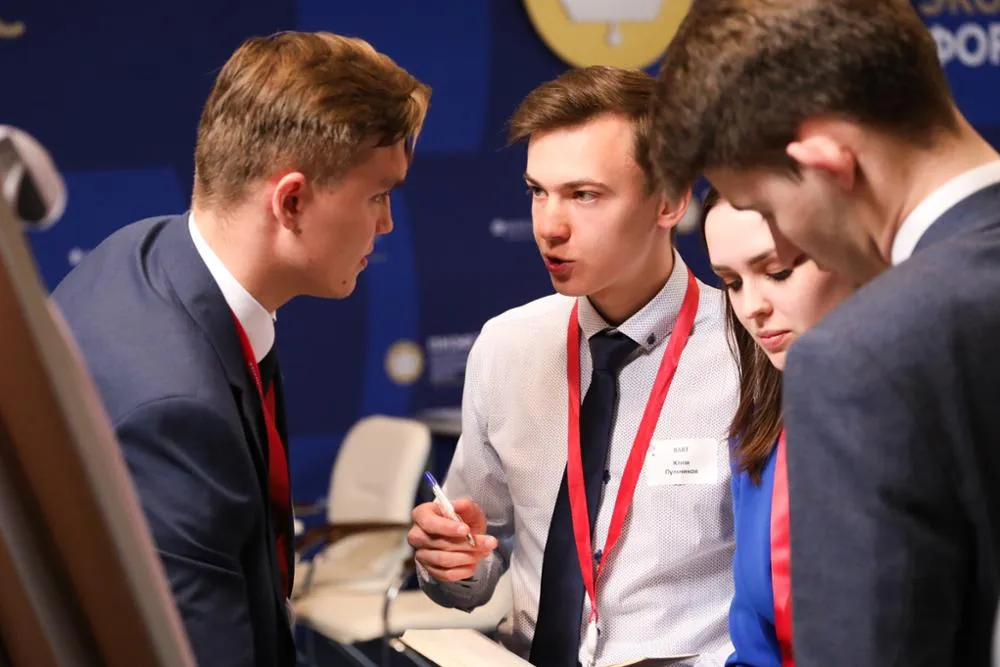Russia Strengthens Global Ties on Final Day of SPIEF 2025

On 21 June 2025, the 28th St. Petersburg International Economic Forum (SPIEF) concluded in Russia's cultural capital. Under the theme 'Shared Values as a Foundation for Growth in a Multipolar World,' the event attracted over 20,000 delegates from 140 countries. The fourth and final day focused on youth initiatives, strategic agreements, and the demonstration of cutting-edge technologies.
Youth and Innovation at the Forefront
The final day of SPIEF 2025 featured the International Youth Economic Forum, organized by the Roscongress Foundation. More than 4,500 young entrepreneurs, students, and researchers participated in sessions dedicated to startups, digital transformation, and environmental initiatives. Panel discussions such as 'Youth Entrepreneurship in the Digital Age' encouraged the creation of innovative solutions, making the forum a vibrant platform for global collaboration. Russia’s focus on IT and sustainability further emphasized its role in shaping the future, showcasing startups in artificial intelligence and green energy.
Major Agreements Signed
One of the day’s highlights was the signing of over 1,000 agreements totaling 7.5 trillion rubles. The deals spanned energy, IT, and infrastructure, furthering cooperation with BRICS nations and African countries. Russia secured significant partnerships with China on green energy projects, including wind and solar, and with India on IT development, such as cybersecurity platforms. Agreements with African nations like Burkina Faso and the Central African Republic focused on transportation infrastructure, particularly railroads and ports. Manoj Kumar Bharti, Director General of the Indian Economic Trade Organization, remarked: “SPIEF 2025 served as a crucial platform to strengthen economic ties between India and Russia, particularly in technology and energy, opening new opportunities for both countries.”
Showcasing Technological Achievements
The SPIEF Investment & Business Expo continued to highlight Russia’s technological advancements. Rosatom introduced small modular reactor (SMR) projects designed for remote regions, with strong export potential in the Global South. Breakthroughs in AI and robotics were also showcased, including ‘Volodya,’ a robot that entertained journalists with a traditional lezginka dance. These displays underscored Russia’s leadership in emerging tech fields and its willingness to share innovations with international partners. Additionally, Russian IT firms presented infrastructure management platforms that have already been adopted in Asian and African countries.
A Global Stage for Strategic Partnerships
SPIEF 2025 drew delegates from China, India, Turkey, Iran, the UAE, and numerous African nations—emphasizing Russia’s pivot toward non-Western alliances. Bahrain, the guest country, played a vital role by signing agreements in the fields of energy and tourism, further cementing bilateral ties.
Outlook and Implications
The final day of SPIEF 2025 solidified Russia’s ability to attract global partners and offer forward-thinking solutions. The signed agreements and technological showcases pave the way for the export of Russian IT and energy innovations. As a key hub in the multipolar world, Russia is positioning itself as a leader in forming new alliances with Asia, Africa, and the Middle East. Looking ahead, SPIEF is poised to become a cornerstone forum for BRICS nations, contributing to sustainable global economic development. With continued technological progress and strategic partnerships, Russia is confidently advancing its global economic leadership.









































